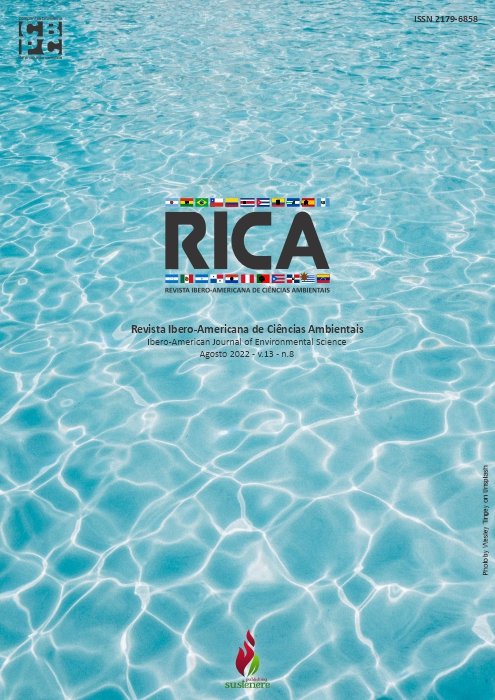Effect of fertigation with dairy wastewater in the salinity of the soil cultivated with Mombaça grass
DOI:
https://doi.org/10.6008/CBPC2179-6858.2022.008.0013Keywords:
Effluent, Reuse, Clay dispersionAbstract
The dairy industry is characterized by consuming a large amount of water for processing and cleaning operations, as well as high generation of wastewater (effluents), which, when disposed improperly, can cause deleterious effects to the soil, cultures and water bodies. Thus, this study aimed to determine the possible changes in clay dispersion and sodium saturation index in soil grown with Mombaça grass, when applied doses of dairy wastewater in order to provide sodium content ranging from 75 to 600 kg ha-1 year-1. According to the results, it was concluded that there were no changes in the soil and that the rate of 600kg ha-1 year-1 can be used without causing soil salinity problems.
Downloads
Downloads
Published
Issue
Section
License
Copyright (c) 2023 Ibero-American Journal of Environmental Sciences

This work is licensed under a Creative Commons Attribution-NonCommercial-NoDerivatives 4.0 International License.
The CBPC - Companhia Brasileira de Produção Científica (Brazil CNPJ: 11.221.422/0001-03) the material rights of the published works. The rights relate to the publication of the work anywhere in the world, including rights to renewals, expansions and dissemination of the contribution, as well as other subsidiary rights. All electronically published works may subsequently be published in printed collections under the coordination of this company and / or its partners. The authors preserve the copyright, but are not allowed to publish the contribution in another medium, printed or digital, in Portuguese or in translation.









